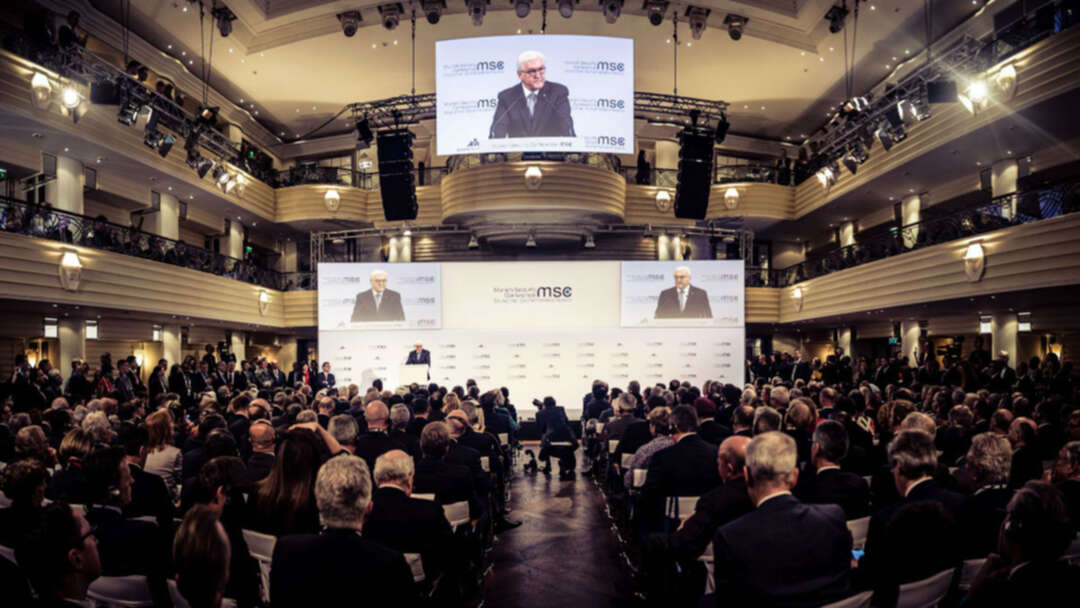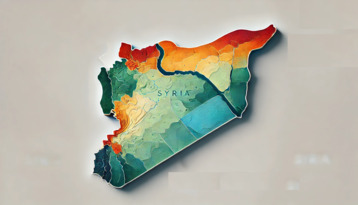-
Munich Security Conference 2020 Arab Disillusionment

After the Arab spring back in 2011, the political Islam was one of the loudest voices – today, more young people turn away from religion
They came late, but finally benefited from the change: While mass demonstrations faded away one authoritarian regime after the other back in 2011, the preachers were missing on the streets, who wanted to sort the societies with the supposed will of Allah. When the Ben Ali, Mubarak and Gaddafi regimes failed, those forces took power partially in Tunisia with the Islamist Ennahada, or totally like in Egypt, where the Muslim Brotherhood took over the presidency. Many experts stated „a decade of the political Islam.“
Nine years later, no-one is still claiming influence or power for this movement changing the region. Again, thousands demonstrate in the streets of Sudan or Algeria, but without any religious slogans. In Iraq and Lebanon young protesters chant to be fed-up with religious politics as they are with corruption. Many analysis underline the disillusionment of many societies between Maghreb and Mashrek concerning the postulate of „the solution is only Islam.“
Especially the young generation doubts the theory that the Islamic world is immune to any secular tendencies. The Arab Youth Survey, 3,300 young adults under the age of 24 from 15 Arab countries were interviewed, shows a dramatic shift in its 2019 report: two thirds state that religion has too much influence, whereas in the report 2015 only 50% agreed. Also, half of the participants underline the opinion that Islam is hindering a positive development in the Arab world.
The Arab Barometer from Princeton and Michigan University underline the numbers above, even within the older generations: the trust in theological authorties is decreasing. Only 40% have trust in religious leaders (in 2013 53%). The growth of those, who state not being religious and therefore breaking one of the region’s main taboos, seems to be small with 13% in 2019, compared with 8% in 2013. But looking at the statistics of the generations under 30, a different picture emerges: Today, 50% of young Tunisians, a third of the Lebanese and 20% of Egyptians say that religion does not play any role in their lives. In Turkey, where Erdogan announced „the education of a devouting generation“ in 2012, a renunciation can be monitored: the number of believers is decreasing, only 51% still agree being religious.
No secular age, but significant changes
In countries like Iraq, Lebanon or Bahrain with a high numbers of Shiite Muslims, survey participants with a Schiet background were represented. But in the most important Shiite country Iran, such a survey is impossible, because the political Islam is state doctrine. Experts in fact state that the Iranian population is turning its back from the religious dictate. One, probably urban phenomenon, might be that women question the cover-up doctrine. But at least it is a symptom for a change, even in a country like Iran.
Calling-out a secular age is still too early, especially having in mind that religion might become again important for the younger generation when they get older. But scientists like Michael Robbins from the Arab Barometer state that their data might be an indicator for „significant change in the upcoming years.“ Looking at the popularity of Islamist parties, many former facts start slippering: According to Arab Barometer a fifth of the Arab population still support them – 2013 35% did so.
But also in geopolitical terms, the political Islam seems to lose its grip. The long-lasting crisis between Shiites and Sunnis in the Gulf region an inner-sunni conflict became important: While Turkey and the Gulf states were acting as an „entente“ in the past concerning the conflict in Syria and supporting Islamist and jihadist rebels, they became enemies now.
Like Qatar, Erdogan’s Turkey is now openly supporting groups close to the Muslim Brotherhood. Those groups are non-democratic, but use democratic elections for gaining power in order to change the political system. Meanwhile, the monarchies in Saudi Arabia, the Emirates, who claim that Erdogan wants to invent a Neo-Ottoman empire, see those movements as a rival and opponent to their even non existing pseudo-democratic powers. For them, unlike to the ideology of the Muslim Brotherhood, religion serves only as a means for their ruling.
Started in Egypt, today in Libya, the Kurdish-controlled regions in Syria and in the Palestinian conflict both sides are trying to beat the opponent. Sometimes through diplomacy, sometimes with money and weapons delivery, sometimes by exporting militia. Instead of supporting the political Islam, the leading Sunni powers are containing each other. Does this in consequence mean a „decade of secularism“? „Allahu a’lam“ is a saying also used by many moderate Muslims. „Only God knows what is best.“
source : mena-studies.org
You May Also Like
Popular Posts
Caricature
BENEFIT AGM approves 10%...
- March 27, 2025
BENEFIT, the Kingdom’s innovator and leading company in Fintech and electronic financial transactions service, held its Annual General Meeting (AGM) at the company’s headquarters in the Seef District.
During the meeting, shareholders approved all items listed on the agenda, including the ratification of the minutes of the previous AGM held on 26 March 2024. The session reviewed and approved the Board’s Annual Report on the company’s activities and financial performance for the fiscal year ended 31 December 2024, and the shareholders expressed their satisfaction with the company’s operational and financial results during the reporting period.
The meeting also reviewed the Independent External Auditor’s Report on the company’s consolidated financial statements for the year ended 31 December 2024. Subsequently, the shareholders approved the audited financial statements for the fiscal year. Based on the Board’s recommendation, the shareholders approved the distribution of a cash dividend equivalent to 10% of the paid-up share capital.
Furthermore, the shareholders endorsed the allocation of a total amount of BD 172,500 as remuneration to the members of the Board for the year ended 31 December 2024, subject to prior clearance by related authorities.
The extension of the current composition of the Board was approved, which includes ten members and one CBB observer, for a further six-month term, expiring in September 2025, pending no objection from the CBB.
The meeting reviewed and approved the Corporate Governance Report for 2024, which affirmed the company’s full compliance with the corporate governance directives issued by the CBB and other applicable regulatory frameworks. The AGM absolved the Board Members of liability for any of their actions during the year ending on 31st December 2024, in accordance with the Commercial Companies Law.
In alignment with regulatory requirements, the session approved the reappointment of Ernst & Young (EY) as the company’s External Auditors for the fiscal year 2025, covering both the parent company and its subsidiaries—Sinnad and Bahrain FinTech Bay. The Board was authorised to determine the external auditors’ professional fees, subject to approval from the CBB, and the meeting concluded with a discussion of any additional issues as per Article (207) of the Commercial Companies Law.
Speaking on the company’s performance, Mr. Mohamed Al Bastaki, Chairman BENEFIT , stated: “In terms of the financial results for 2024, I am pleased to say that the year gone by has also been proved to be a success in delivering tangible results. Growth rate for 2024 was 19 per cent. Revenue for the year was BD 17 M (US$ 45.3 Million) and net profit was 2 Million ($ 5.3 Million).
Mr. Al Bastaki also announced that the Board had formally adopted a new three-year strategic roadmap to commence in 2025. The strategy encompasses a phased international expansion, optimisation of internal operations, enhanced revenue diversification, long-term sustainability initiatives, and the advancement of innovation and digital transformation initiatives across all service lines.
“I extend my sincere appreciation to the CBB for its continued support of BENEFIT and its pivotal role in fostering a stable and progressive regulatory environment for the Kingdom’s banking and financial sector—an environment that has significantly reinforced Bahrain’s standing as a leading financial hub in the region,” said Mr. Al Bastaki. “I would also like to thank our partner banks and valued customers for their trust, and our shareholders for their ongoing encouragement. The achievements of 2024 set a strong precedent, and I am confident they will serve as a foundation for yet another successful and impactful year ahead.”
Chief Executive of BENEFIT; Mr. Abdulwahed AlJanahi commented, “The year 2024 represented another pivotal chapter in BENEFIT ’s evolution. We achieved substantial progress in advancing our digital strategy across multiple sectors, while reinforcing our long-term commitment to the development of Bahrain’s financial services and payments landscape. Throughout the year, we remained firmly aligned with our objective of delivering measurable value to our shareholders, strategic partners, and customers. At the same time, we continued to play an active role in enabling Bahrain’s digital economy by introducing innovative solutions and service enhancements that directly address market needs and future opportunities.”
Mr. AlJanahi affirmed that BENEFIT has successfully developed a robust and well-integrated payment network that connects individuals and businesses across Bahrain, accelerating the adoption of emerging technologies in the banking and financial services sector and reinforcing Bahrain’s position as a growing fintech hub, and added, “Our achievements of the past year reflect a long-term vision to establish a resilient electronic payment infrastructure that supports the Kingdom’s digital economy. Key developments in 2024 included the implementation of central authentication for open banking via BENEFIT Pay”
Mr. AlJanahi concluded by thanking the Board for its strategic direction, the company’s staff for their continued dedication, and the Central Bank of Bahrain, member banks, and shareholders for their valuable partnership and confidence in the company’s long-term vision.
opinion
Report
ads
Newsletter
Subscribe to our mailing list to get the new updates!





















